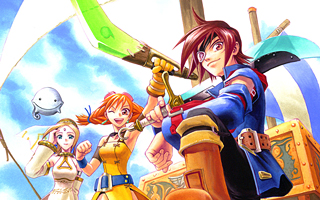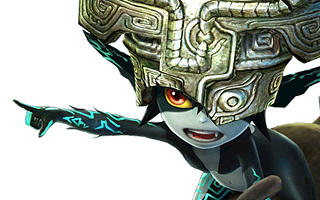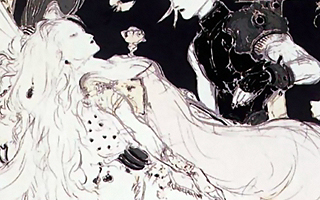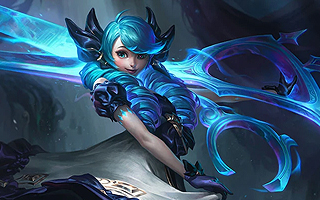Licensed Music Tracks
Top 10 Best Licensed Music Tracks of All Time!
There are several music-related countdowns on this site already, but they all deal with original soundtracks that were specifically created for the video game world. This list, in contrast, looks at the most effective examples of licensed music. Licensed soundtracks can sometimes feel out of place, but every once in a while an existing song will seem like it was written for a particular video game. To keep things interesting, we’re going to disregard rhythm games like Guitar Hero and Rock Band. The entries on this list used licensed songs in an effective manner, but they aren’t completely defined by their soundtracks.
Click on the images to hear the theme songs for yourself. Make sure your volume isn’t set too high!
10
“Ain’t No Rest For the Wicked” – Cage the Elephant
Borderlands
In the opening moments of Borderlands, the four main characters are on an armored bus barreling through a desert. The characters are given brief introductions as Cage the Elephant’s Ain’t No Rest For the Wicked plays in the background. The song only plays for about 90 seconds or so, but it sets the tone for the entire game (and the franchise as a whole.) The track has elements of alternative rock and punk blues, and it fits well with a game like Borderlands that doesn’t necessarily fall into one particular genre. The lyrics reference all sorts of seedy characters from the underbelly of society, and this theme seems to extend to the unsavory crew on board the bus. The song has been licensed for countless TV shows and commercials, but it will always remind me of Borderlands. Other games in the Borderlands series featured similar opening sequences that tried to capture the same energy, but I have to give credit to Ain’t No Rest For the Wicked for setting the trend.
9
“Mad World” – Michael Andrews and Gary Jules
Gears of War 3
The iconic trailer for the first Gears of War featured a melancholy cover of Mad World performed by Michael Andrews and Gary Jules. The song’s reflective tone seemed to contrast the fast-paced nature of the game, but it certainly grabbed your attention. In fact, it was even recognized on this very site as one of the best gaming ads of all time. Not everyone was a fan, however, and some people argued that the music in the ad was manipulative and dishonest. Gears of War was a violent shooter, after all, and the game wasn’t nearly as emotional as the TV spot made it out to be. Although the song wasn’t actually in the first Gears of War, it was featured in Gears of War 3. In the midst of an intense firefight, an instrumental rendition of Mad World begins to play while Marcus Fenix’s right-hand man sacrifices himself to save his friends. It’s a poignant scene, and it proves that even mindless action games can have emotional weight. Mad World helped introduced Gears of War to the world, so it was something of a nostalgic throwback when the song started playing in Gears 3.
8
“The Man Who Sold the World” – Midge Ure
Metal Gear Solid V: The Phantom Pain
During the opening moments of Metal Gear Solid V: The Phantom Pain, Big Boss wakes up from a coma in the wake of an assassination attempt. As he lies in a hospital bed, his vision is out of focus and the sound levels are irregular. It’s as though he’s waking up after a prolonged dream. As Big Boss struggles to regain consciousness, Midge Ure’s 1982 cover of David Bowie’s The Man Who Sold the World plays on a nearby Walkman. The song is known for its dark mood and atmospheric synths, and these aspects are even more apparent when the pitch and volume are constantly fluctuating. It’s creepy and unsettling, and the first-person perspective makes you feel like you’re the one who’s waking up from a coma. The classic song fits with the pacing of the scene, but it also works on a deeper level. The Man Who Sold the World is about an encounter with a doppelgänger, and this is appropriate for a series like Metal Gear that explores topics like cloning and false identities. The lyrics foreshadow one of the game’s biggest plot points, but they do it in a subtle way without directly screaming in your face.
7
“Beyond the Sea” – Bobby Darin / Django Reinhardt
BioShock
BioShock takes place in the remarkable underwater city of Rapture. The city was conceived as an isolated utopia, and Bobby Darin’s version of Beyond the Sea fits perfectly with the idealized setting. The song was used in BioShock‘s advertising campaign, and it was brilliantly implemented into the game itself. Django Reinhardt’s instrumental cover plays as you’re lured into the city at the beginning of the game, and Bobby Darin’s unmistakable 1959 version is played on a jukebox once you find the cocktail lounge. By this point, it has become apparent that the city isn’t the paradise that it was made out to be. Class warfare has spiraled out of control, mutant junkies are running wild, and everything is falling apart. An optimistic love song like Beyond the Sea suddenly seems out of place in the chaotic environment, but it’s an effective frame of reference that accentuates how far Rapture has fallen. The idealistic song reflects what Rapture was supposed to be, but it seems intentionally ironic when its set against the backdrop of what Rapture evolved into.
6
“(Don’t Fear) The Reaper” – Blue Oyster Cult
Prey
There aren’t many games that have a better opening act than Prey. What starts as a normal night out escalates into a brawl and eventually culminates with a full-blown alien abduction. It’s like riding a roller coaster that never slows down. One minute you’re playing VLTs at a reservation bar, and the next you’re hitting drunk rednecks with a pipe wrench. It’s at this point that the lights start to flicker and the bar starts to shake. The roof is violently ripped off, bright lights shine down from above, and you’re lifted into the sky and transported onto an alien starship. WTF!? It all happens without warning, and the background music makes everything seem even more unsettling. When the aliens first arrive, the jukebox suddenly starts playing (Don’t Fear) The Reaper by Blue Oyster Cult. It’s not clear if the aliens made the song play on purpose, but the ominous lyrics fit the scene like a glove. Perhaps the space travelers were fans of psychedelic rock, or maybe they just wanted to hear more cowbell. In any regard, the scene wouldn’t have been nearly as memorable without the music. If I’m ever abducted by aliens, I hope they give me the courtesy of playing a classic rock ballad.
5
“Fly Me to the Moon” – Helena Noguerra / Brenda Lee
Bayonetta
It’s not an overstatement to describe Bayonetta as one of the most stylish action games ever. The combo-centric gameplay is inventive, the action sequences are over-the-top, and the eponymous protagonist is made of pure sex. The soundtrack is perfectly suited to the on-screen action, and it accentuates just how absurd the entire game is. The up-tempo remix of Fly Me to the Moon by Belgian singer Helena Noguerra is a perfect example. The song was written by Bart Howard in 1954 and quickly earned its place in the Great American Songbook. All the greats covered it, and Frank Sinatra’s version became closely associated with the Apollo missions in 1964. Bayonetta still acts as though it was written for her, of course, and she absolutely owns the song as she playfully murders her enemies with her dance-based attacks. The jazzy remix catches you off guard at first, but it becomes a recurring theme and contributes to the game’s musical core. Bayonetta even whispers the song to herself at one point. A slower version of the song (performed by the legendary Brenda Lee) is used for the end credits, and it proves to be the perfect backdrop for Bayo’s celebratory pole dancing routine. You’d never catch Ol’ Blue Eyes working a pole, so I guess that’s just another example of Bayonetta making the song her own.
4
“I Don’t Want to Set the World on Fire” – The Ink Spots
Fallout 3
The Fallout series is set during the 22nd and 23rd centuries, but its world is influenced by the post-war culture of 1950s America. The entire franchise is defined by its atompunk retro-futuristic themes, and the soundtrack is mostly comprised of American big band music from the 1940s. The games rely heavily on sentimental songs from the likes of Billie Holliday and the Andrew Sisters, but we’re going to take a look at an incidental recording from the Ink Spots. Their haunting 1941 rendition of I Don’t Want to Set the World on Fire played during the trailer of Fallout 3 and was later used as part of the game’s introduction. If I hadn’t already been familiar with the song, I would have believed it had been written specifically for the game. The slow tempo and somber vocals matched the post-apocalyptic landscape of the capital wasteland, and the lyrics sounded unsettling even though they looked uplifting on paper. They simply don’t write songs like that anymore, and you could likely identify what era the song was from just by listening to the opening bars.
3
“Superman” – Goldfinger
Tony Hawk’s Pro Skater
Skateboarding is an extreme sport that has developed its own subculture. Tony Hawk’s Pro Skater tried to capture the spirit of skating, and the soundtrack was a big part of its success. 1990s skate rock was high-energy music defined by fast tempos, melodic riffs, and driving basslines. The songs that were chosen for the game were tracks that you’d likely hear at a real skate park, and this made the entire experience feel more authentic. Bands like Primus, Dead Kennedys, and Suicidal Tendencies were prominently featured, but Goldfinger’s Superman became Tony Hawk’s de facto theme song. It was chosen for the first stage, after all, so it kind of set the tone for the entire game. I can’t listen to the upbeat ska anthem without feeling like I’m skating in a warehouse and looking for VHS tapes, and there’s something about the catchy opening riff that makes me crave pizza bagels and Mtn Dew. Tony Hawk’s Pro Skater cast a wide net and appealed to those who were not otherwise interested in skating, so I can only imagine how many Goldfinger records were sold as a direct result of the game.
2
“All I Want” – The Offspring
Crazy Taxi
Crazy Taxi reminds me of a bygone era where Sega was in the hardware game, arcades were thriving, and pop punk music was absolutely everywhere. Crazy Taxi was a different kind of racing game that effectively gave players the ability to choose where the finish line was. Instead of racing on a predetermined course, players picked up passengers and tried to deliver them to their destinations before the time ran out. Naturally, you were encouraged to drive recklessly and perform as many stunts as you could along the way. Even though you weren’t competing against other cars, it was as competitive as any racing game I’ve ever played. The energy of Crazy Taxi was amplified by its soundtrack, and the music of the Offspring and Bad Religion mirrored the game’s fast-paced nature. All seven songs featured in the game are forever burned into my mind, but All I Want holds a special place in my heart. The song (which also plays during the game’s attract mode) really gets the adrenaline flowing, and Dexter Holland’s opening call of “Yeah! Yeah! Yeah! Yeah! Yeah!” prepares you for what’s ahead. I didn’t realize how important the music was until it was gone. The PC, PlayStation 3, and Xbox 360 ports excluded the original soundtrack, and it felt like the game’s energy was siphoned away in the process.
1
“Holding Out for a Hero” – Bonnie Tyler
Saints Row: The Third
Bonnie Tyler’s Holding Out for a Hero was written for Footloose and younger audiences might remember it from Shrek 2, but it’s the type of song that can make any situation more exciting. The Death Star trench run in Star Wars? Neo’s fight with Agent Smith in The Matrix? Dr. Strange’s entrance in Endgame? All great scenes in their own right, but they would have been even more epic if Holding Out for a Hero had been playing in the background. I’m obviously exaggerating a bit, but the song really does have that kind of energy. The last mission of Saints Row: The Third gives players the option of eliminating a scumbag named Killbane or saving their friend, Shaundi. The choice is just an illusion during your initial playthrough, however, and the music pretty much makes the decision for you. Even those who were determined to kick Killbane’s ass likely changed their mind once Holding Out for a Hero started to play. The song gets your adrenaline flowing and actually makes you feel like a hero, so you’ll be compelled to run to Shaundi’s aid. If Holding Out for a Hero had been playing on the Titanic, the ship would have found the way to defeat the iceberg.















Do you agree with this list? Let us know what you think by leaving a comment below. Your opinion matters!